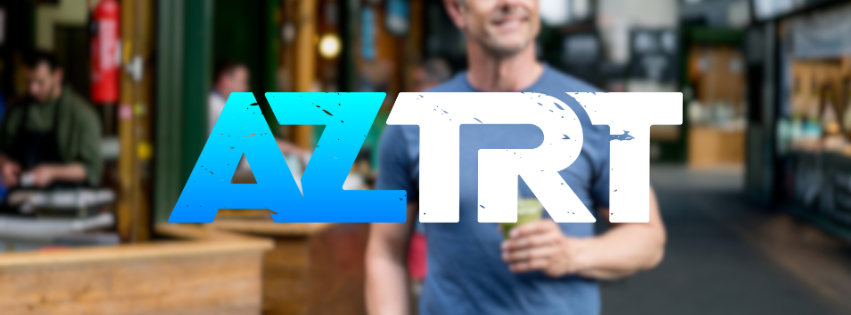
How Diet and Lifestyle Affect Your Testosterone Levels
While Testosterone Replacement Therapy can help correct deficiencies, your daily habits play a huge role in your hormone health. Diet, stress, sleep, and activity levels all impact testosterone production. In this post, we’ll explore the top lifestyle factors that influence testosterone—and how AZTRT integrates this understanding into your care.
Diet and Testosterone
Certain nutrients are critical for testosterone synthesis:
What Helps:
- Zinc and Magnesium: Found in meat, shellfish, and leafy greens.
- Healthy fats: Especially monounsaturated fats from avocados, olive oil, and nuts.
- Protein: Vital for hormone function.
What Hurts:
- Highly processed foods
- Refined sugars
- Excess alcohol
Eating a balanced, nutrient-rich diet helps support your body’s natural testosterone production, even when you’re undergoing TRT.
Sleep and Hormones
Most testosterone is produced during deep sleep. Sleep deprivation has been shown to reduce testosterone levels significantly. Aim for 7–9 hours of high-quality rest per night. At AZTRT, we assess sleep habits during your consult and offer guidance if poor sleep may be impacting your hormones.
Stress and Cortisol
Chronic stress increases cortisol, a hormone that suppresses testosterone. Even low-level, ongoing stress can reduce testosterone over time. Incorporating stress-reducing techniques like meditation, walking, or limiting screen time can support your hormonal balance.
Exercise and Activity
Resistance training and High-Intensity Interval Training (HIIT) have been shown to boost testosterone naturally. Sedentary lifestyles, on the other hand, are often linked to declining testosterone levels.
How AZTRT Supports Lifestyle Integration
- We assess your habits as part of our initial intake.
- Our medical team can help identify non-medical changes that enhance your TRT outcomes.
- Your protocol is built with your lifestyle in mind—because your therapy should work with you, not against you.
TRT is powerful—but even more so when combined with the right lifestyle. AZTRT offers a full-spectrum approach that takes your habits and goals into account for better long-term outcomes.
Want to take a smarter approach to hormone health? Schedule a consultation with AZTRT today.



